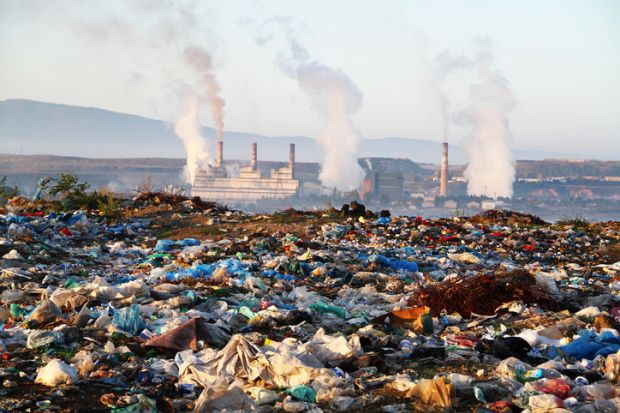Technology is not the main barrier when universities harness data to create early warning systems for natural and unnatural hazards, a Bangkok conference has heard.
Hong Kong University of Science and Technology (HKUST), which has used big data to refine its air quality monitoring capabilities by several orders of magnitude, said its approach would be “relatively easy for others to reproduce”.
“Every city can develop…this type of framework for themselves, because different locations have different needs,” Alexis Lau, director of the university’s Institute for the Environment, told Times Higher Education’s Global Sustainable Development Congress. “We can have the best science [and] most accurate methods, but we really need to work together.”
HKUST’s Personalised Real-time Air-quality Informatics System for Exposure (Praise) app gives users localised information about the air they are breathing. Professor Lau said air quality was widely recognised as the “largest environmental risk”, responsible for 7 million premature deaths globally every year, but people paid it little attention – partly because they felt unable to avoid it, and partly because information about it was too “generic”.
Praise attempts to overcome this by delivering street-by-street information – right down to a scale of a few metres, in some areas – so that users can avoid air pollution hotspots.
Professor Lau said the same approach could be used to develop warning systems for other lethal hazards, such as extreme heat. He said heat stress was influenced not only by current conditions but also the recent days’ temperatures, as well as factors such as living in upper-storey apartments and spending a lot of time outside.
“We need to get the alert much more personalised,” he told the congress. “And thank God, we have all these new technologies now. We can track the person in terms of what types of activities they do [and] summarise the risks much better.”
While the project had benefited from Hong Kong’s “top level” measurement and modelling, such capabilities were now fairly commonplace. “None of the equipment that we use is really super-expensive. There’s a lot of opportunity here.”
Professor Lau said HKUST wanted to work with other universities to develop similar systems elsewhere – particularly in tropical regions, which had been somewhat neglected in global-scale warning systems. The main challenges lay in understanding local needs, gaining people’s trust, avoiding “warning fatigue” and delivering information in formats most likely to be absorbed, the forum heard.
Eva Yeung, senior manager of community resilience at the Hong Kong Red Cross, said 83 per cent of last decade’s disasters had been caused by climate-related events like floods and heatwaves. She cited a projection that by mid-century, 200 million people would need international humanitarian assistance every year because of climate-related calamities and their socio-economic effects.
Ms Yeung said that every dollar spent on disaster preparedness saved up to 15 times its value in disaster relief costs.
HKUST atmospheric scientist Fei Chen said early warning systems were the “most effective method” for reducing disaster deaths and losses. He said weather and climate monitoring capabilities had improved markedly over the past eight years, with the focus of some forecasters shifting from global and continental scales to individual neighbourhoods and buildings.
Professor Chen told the forum that most people were not overly concerned about weather conditions in the ocean or even the neighbouring city. “They care about what’s happening in their back yard.”
Register to continue
Why register?
- Registration is free and only takes a moment
- Once registered, you can read 3 articles a month
- Sign up for our newsletter
Subscribe
Or subscribe for unlimited access to:
- Unlimited access to news, views, insights & reviews
- Digital editions
- Digital access to THE’s university and college rankings analysis
Already registered or a current subscriber? Login











